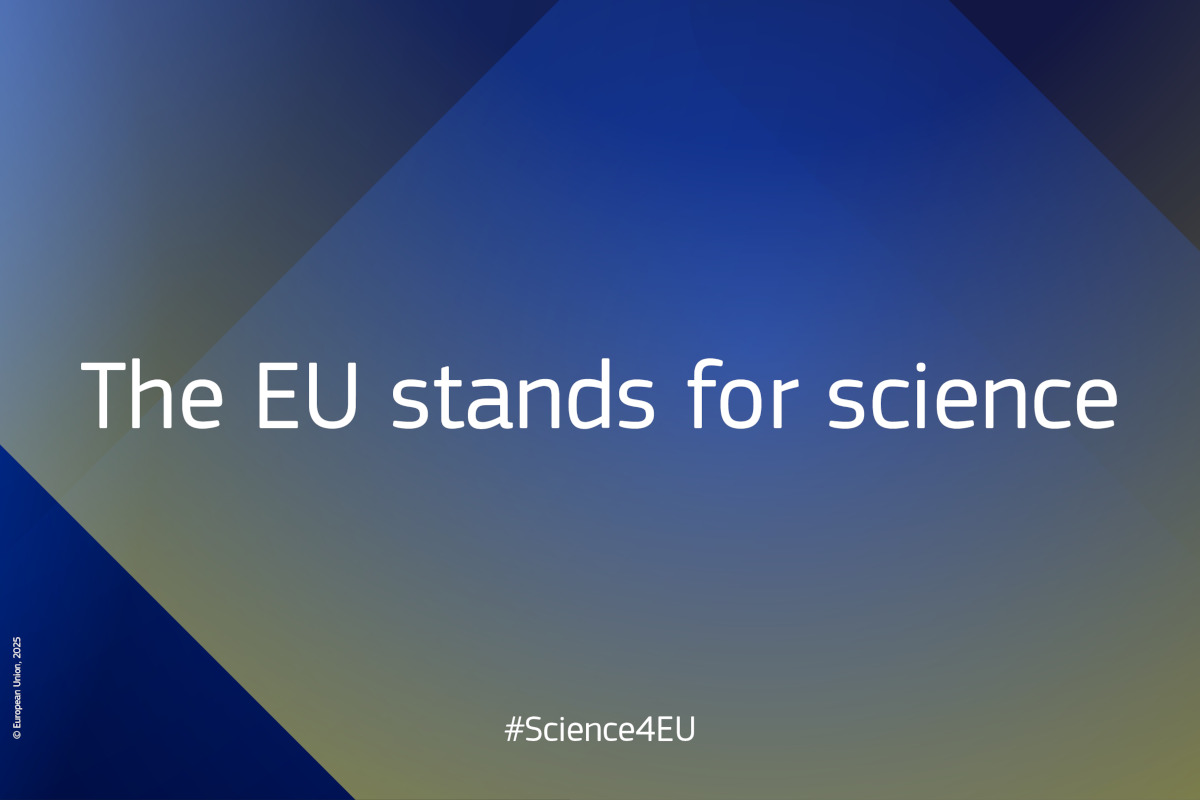An EU-funded research initiative is guiding Europe’s coal regions through the transition to renewable energy, while focusing on job creation and clean energy.
Special series

Science4EU
The Science4EU campaign shows how the EU stands for science. It shines a spotlight on the scientists, researchers, and innovators working with EU support to improve our lives and shape a better future for everyone.
Do you also stand for science?
Podcast
Media AV Portal Audio
More stories

EU-funded researchers are merging multidisciplinary expertise with AI tools to document, reconstruct and preserve Europe’s historical scents.
Most popular
-
1By Michaela Nesvarova
-
2
-
3By Hannah Docter-Loeb
-
4By Andrew Dunne
-
5
Top videos
Breaking free from coal: Europe’s regions forge a sustainable future with EU support
11 July 2025
Art meets AI to reinvent tomorrow’s food systems
9 July 2025
Past articles
The convoying of trains could be one way to help double railway capacity and reduce carbon emissions, according to Andy Doherty, vice-chairman of the European Rail Research Advisory Council and Director of railways system engineering at Network Rail, the UK rail network operator.
European astronomers are planning to use a telescope as big as the earth to take the first ever photograph of a black hole – a task akin to photographing a mouse on the surface of the moon.
Could the Higgs boson help shed light on dark matter, or will a ghostly X-ray signal recorded by Dutch researchers turn out to be a first sign of the mysterious substance?
Innovations such as the Hawk-Eye line calling system, high-tech rackets, strings and smart monitoring can improve the game for tennis players, referees and spectators. However, too much innovation could change the nature of tennis, says Francesco Ricci Bitti, the president of the International Tennis Federation (ITF). Horizon Magazine spoke to him about tennis innovation at the EU’s Innovation Convention 2014.
The genome of the tsetse fly was sequenced in April, and it means scientists are closing in on a way to fight diseases caused by the pathogen it carries, according to Professor Jan Van Den Abbeele at the Institute of Tropical Medicine in Antwerp, who helped generate the data along with his team of researchers.
An explosion in research data combined with an increasing number of people who can use it is transforming science, and Europe should be at the forefront of the change, said Máire Geoghegan-Quinn, European Commissioner for Research, Innovation and Science.
Digital screens made from concrete could mean displays are integrated into the sides of buildings, and make advertising billboards resistant to vandalism, according to Bo Jacobsen, the chief executive of Dupont Lightstone, the driving force behind the EU-funded DIGISTONE project. The project is displaying its first prototype at the EuroScience Open Forum (ESOF) in Copenhagen from 21 to 26 June.
Researchers are preparing to conduct field trials of house fly larvae as a protein-rich supplement to animal feed made of cereals and corn.
Rethinking aircraft engines and new wing designs have the potential to cut carbon emissions and noise, as well as to boost Europe’s aerospace industry, according to Eric Dautriat, chief executive of the Clean Sky Joint Technology Initiative (JTI).
Virtual reality and video games are being used to help people fight back from debilitating strokes.
People do not always get healthier after exercise – that is the finding of several EU-funded research projects looking into the prevention of lifestyle-related diabetes, heart failure and osteoporosis. Now they are trying to work out why.
If we want Europe to gain market share in developing technology for smart devices like phones and tablets, we must embrace public–private partnerships, according to Dr Andreas Wild, executive director of the EU’s new Electronic Components and Systems for European Leadership (ECSEL) Joint Technology Initiative.
Many football fans watch matches on the sofa or in the pub, and their fitness levels often contrast hugely with those of the players on the field. New efforts are underway to convert their fandom into motivation to get active and improve their health, or even to channel their support in socially beneficial ways.
A plant root will grow towards the sound of running water, researchers have discovered, and it is inspiring the development of space robots that can hunt for water and even seek out life.
Researchers are preparing to conduct field trials of house fly larvae as an alternative to animal feed made of cereals and corn, and it means bug-based burgers, bacon and chicken breast could be on supermarket shelves soon.
Bluetooth-connected smart trainers could advise runners in real time if they are at risk of injuring themselves, based on an analysis of their running pattern.
If you are not afraid of heights, this one is for you. With your legs outstretched in front of you, glide around a palm-fringed island on a magic carpet, blissfully unaware of the deprivations of a cramped aircraft cabin. If the thought of flying does not appeal, you can choose a land-based scene, with gentle sounds or music to accompany it on your headset.
The idea that an athlete could change their genes to grow bigger muscles, or increase their body’s production of red blood cells, may sound like the stuff of fantasy, but halting the development of ‘gene doping’ technology is one of the main research priorities of the World Anti-Doping Agency (WADA), according to Dr Olivier Rabin, the organisation’s science director.
As World Cup fever grips football fans this June, Horizon takes a look at the science of sport.
European pilots will be able to fold away their maps and free up their radio frequency in favour of more advanced technologies to communicate their trajectories with air traffic control, said Florian Guillermet, the executive director of the SESAR Joint Undertaking. These are just some of the ways in which SESAR, a public-private partnership, is contributing to Europe’s goal of modernising its air traffic management (ATM) system and joining up its fragmented skies.





























